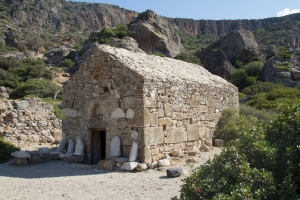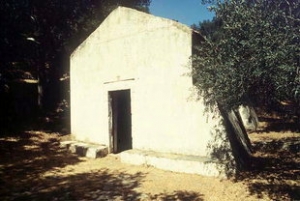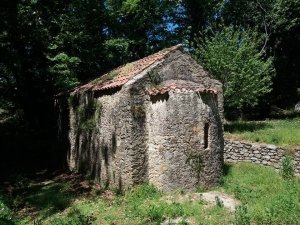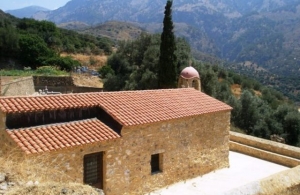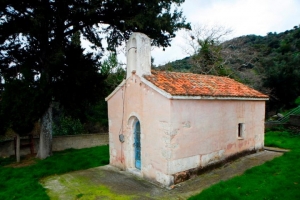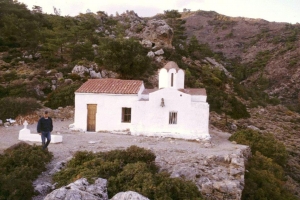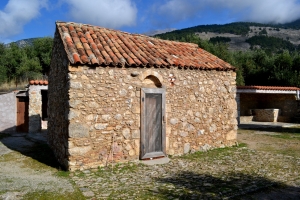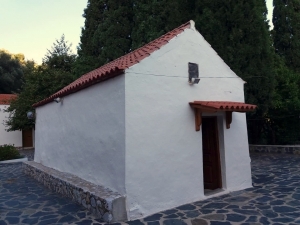At the site of the ancient seaside town of Lissos, west of Sougia, there are the remains of two 6th-century triple-aisle wooden-roof basilicas with a slightly protruding transverse aisle, which were discovered in 1955 by archaeologist N. Padouvas.
The church of Panagia in Sklavopoula, region of Selino, belongs to the architectural type of the one-storey arched-roofed and is dedicated to the Dormition of Theotokos. Inside it bears frescoes dating from the first half of the 14th century and attributed to a very capable hagiographer who introduced to Crete the developments of the Paleologic style.
The Church of Agia Paraskevi in the settlement Trachiniakos near Kandanos is one of the three frescoed temples of the small settlement, which highlights its great religious tradition. The other two temples are Saint John and Prophet Elias.
The church of Saint Nicholas (Agios Nikolaos) is built in a rural area northeast of the village Moni, province Selino. Its oldest eastern section was built in the architectural type of a single-storey arched temple with blind arches on the side walls.
The Church of Panagia (Our Lady) Bitsiani or Pitsiani is located in the position Kaouriana of the small settlement Kadros in Kakodiki, province Selino, and is dedicated to the Nativity of the Virgin Mary (feast. September 8th).
To the north of the Sougia settlement, the church of Saint Irene (Agia Irini) is preserved in the architectural type of the single-nave church with a dome, to which an arched-roof narthex was added in a second stage, which survives as a late reconstruction of its dome.
The small one-storey church of Saint George (Agios Georgios) in Koustogerakos, province Selino, is located in the cemetery of the village. The church rescues 15th-century frescoes by painter Georgios Provatopoulos, according to an inscription of 1488.
A few meters east of the neighborhood Tsiskiana of the village Epanochori, province Selino, we meet the Byzantine church of Saint Eutychius (celebr. August 24th). The temple is small, single-nave and vaulted and was built in a green ravine with huge plane trees. Among the frescoes of the 15th century that stand out there are scenes of sinners.











